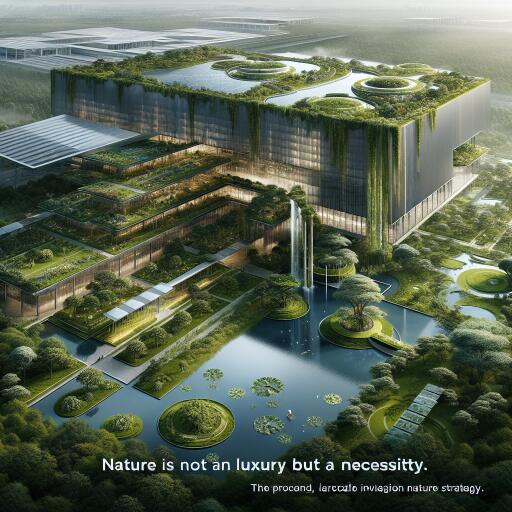
‘Nature is not a luxury but a necessity’: Landsec unveils new nature strategy
In a revealing insight into urban residents’ priorities, a significant study shows a strong public demand for integrating nature and biodiversity into city development, with an emphasis on the preservation of green spaces. This revelation emerged from a comprehensive survey undertaken by Landsec, a leading commercial property development company, highlighting an urgent call for action among city planners and developers.
The survey targeted over 1,200 participants from key UK cities including London, Birmingham, Manchester, Leeds, Glasgow, and Cardiff. A striking 55 percent of those surveyed expressed intentions to eventually move from cities to achieve closer proximity to natural environments. The call for more green spaces was overwhelming, with 87 percent voicing the necessity for city developments to prioritize nature, and 84 percent advocating for increased urban preparedness against climate change impacts.
Insights from the survey suggest a shift in urban expectations, particularly heightened by the COVID-19 pandemic’s influence. Over half of the respondents pinpointed a need for improved air quality, access to natural spaces, and affordable housing as key factors for enhancing city living conditions.
In response to these findings, Landsec has announced a pioneering nature strategy aimed at enriching biodiversity across its properties and upcoming projects. The strategy focuses on creating new habitats for wildlife and implementing nature-based solutions to address urban challenges, including climate change adaptation and the achievement of net-zero targets.
Under this ambitious plan, Landsec commits to a Biodiversity Net Gain (BNG) exceeding current governmental requirements, aiming for a 10 percent increase in BNG for existing properties and a 20 percent target for new developments with pre-existing green features. This initiative is structured around the Urban Greening Factor measurement and the Environmental Benefits from Nature tool – both instrumental in evaluating the ecosystem services provided by green spaces, such as air purification, cooling, and water management.
Jennie Colville, Landsec’s Head of Sustainability, emphasized the crucial role of nature in sustaining urban life. “Nature enriches our cities in countless ways, from the air we breathe to the psychological benefits it brings. As urban developers, we have a responsibility to incorporate natural elements into our projects, not just for the current generation but as a legacy for the future,” she stated. The company’s new approach challenges traditional urbanisation models by integrating nature conservation with socio-economic development, aiming to foster environments where both people and nature can thrive.
As part of its comprehensive strategy, Landsec has developed Core Nature Requirements (CNRs) and Nature Action Plans (NAPs) for its assets, ensuring that ecological considerations are integrated into every stage of development and asset management. This holistic approach is complemented by the creation of a Nature Handbook, guiding teams on the selection and positioning of plant species to optimize ecological benefits.
Landsec pledges to regularly report on the progress of its nature strategy for existing assets biennially and for new developments through continuous ecological surveys. This commitment underscores a dedicated effort to reconcile urban development with environmental preservation, setting a precedent for sustainable city planning.
As urban populations continue to grow, and the challenges of climate change become increasingly evident, the necessity for cities that balance human and ecological needs has never been clearer. Landsec’s forward-thinking nature strategy represents a vital step towards realizing this vision, indicating a promising direction for future urban development.





Leave a Reply